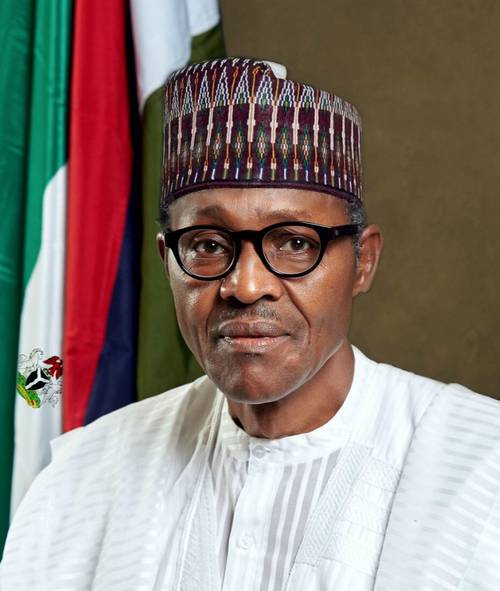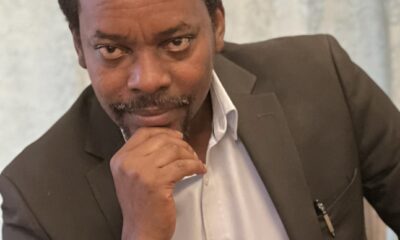Political Issues
An Assessment Of Buhari’s First Term -By Chris Adetayo

And so we arrive here. Four years on from the excitement of voting out a sitting government for the first time in the nation’s life. Hopes were high in 2015. Dreams were over-flowing. Joy was palpable. Across much of the land, the sense of a nation gifted the opportunity to re-start was shared.
The dreams were not Eldorado-ish. The hopes were not outlandish. Most certainly, the feeling of people power, a feeling that the people finally made their disaffection felt via the ballot box, drove the joy. So most looked forward to seeing the beginning of the revamping of Nigeria.
Sadly, and this is a personal assessment, the last four years have been a palpable disappointment. To be uncharitable, one would describe it as a monumental waste. Our dreams have been deferred. Our hopes dashed. We have, metaphorically speaking, been sold down the river.

Make no mistake, the past four years have been eventful. But the events have been of the most unexpected types. No sooner had the president gotten into office that he lost, arguably, the most important battle of his tenure – with the legislature. By doodling away while professional politicians got to work immediately, he managed to see his party’s candidates lose leadership elections into key posts in the National Assembly. He never recovered from that slip. The result was evident in the mutual suspicion and disdain that permeated the relationship between the executive and the legislature over the entire period. Needless to say, no real change was possible in such an atmosphere.
Having lost his first battle, the president went on to inflict a deep wound on himself and the rest of the country by failing to appoint a cabinet in almost six months. The country was thus denied the benefit of critical political leadership at a crucial time, one of the key reasons why the economy nose-dived. Nigeria has yet to fully recover from the presidential dereliction of duty.
When he finally roused himself to appoint a cabinet, we were served with persons who had, at several times in the past, been part of the problem. For a man who promised that he was “for everybody and nobody”, his appointments were largely based on political patronage, rather than any keen desire for effectiveness. So we ended up with some who had been non-performing ministers 35 years earlier, others who had ran their states aground as governors, some who forged documents to get into office, and so on. Four years after, it is hard to think of a cabinet in the history of this country that performed as woefully as the crop of ministers appointed in 2015.
Today, the security of lives and property hangs in the balance. Across the land, we are dealing with multiple security challenges – Boko Haram in the North-East; herdsmen versus farmers in the Middle Belt; kidnappers in the North-Central and, increasingly, in the South-West; oil bunkerers in the South-South, and secessionists in the South-East. The government keeps trying – we must admit that. But, with a largely reactive mindset, the results of its efforts just aren’t showing.
The economy has continued to be struggle. At the beginning of the decade, national growth was averaging 6 per cent per annum, driven by sky-high oil prices. When that gave way, the result was almost predictable. Yet good economic management would have helped. Sadly, that has been lacking in spades. Across the land, inflation remains in double digits, governments expenditure remains heavily weighed on recurrents (largely salaries) to the detriment of critical capital projects, and the attendant increase in the poverty numbers has been soul-destroying. For solution, we have taken to welfarist policies that are increasingly enmeshed in politics, while failing to move the growth needle.
The most disappointing thing, for me, has been the failure to even attempt taking on anything remotely close to a social change project. For a man who campaigned on “change”, and whose reputation was built on his 1984 “War Against Indiscipline”, one would have expected part of his focus to be about changing the social and cultural ways that have seen the entrenchment of vices like corruption, 419, “Yahoo-Yahoo”, indiscipline etc. Sadly, no concerted effort was made. After the initial “body language” breeze blew over, we have remained where we were four years ago.
So what hope for the future? What hope for the next four years under the same president? How hopeful can one afford to be? It is hard to tell. The president has told us to expect difference. That he will no longer be “Baba Go Slow” (his own words). That he will be more hands-on in the affairs of governance. That he will expect more from his lieutenants and appointees.
Recognising some of his shortcomings is a good start. Still, I am not hopeful. But I shall be watching for positive signs. The country is in dire need of them.
Chris Adetayo is a marketing communications professional and public/international affairs commentator.

















